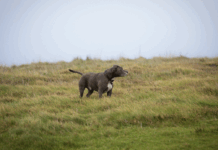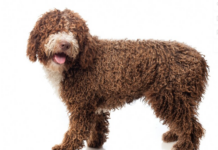Last Updated on August 26, 2024 by Dogs Vets
Unveiling the Daisy Dog: A Beloved Hybrid Breed
Discover the delightful world of the Daisy Dog, a charming hybrid breed renowned for its affectionate nature and low-shedding coat. This unique blend of small, non-shedding dogs offers a loyal and loving companion for families and individuals seeking a lap dog.
Key Points:
-
Breed Overview:
- Height: 10-12 inches
- Weight: 10-15 pounds
- Lifespan: 12-17 years
- Colors: Diverse range of colors and patterns
- Temperament: People-oriented, happy, devoted
History:
Developed in the 1980s, the Daisy Dog is a carefully bred hybrid with specific traits. While the exact mix of breeds is often kept confidential, it typically includes small, non-shedding dogs.
Temperament and Intelligence:
- Personality: Affectionate, playful, and loyal
- Intelligence: Moderate, with a focus on companionship rather than work
- Energy Level: Low to moderate, ideal for families seeking a lap dog
Care and Grooming:
- Diet: High-quality dog food with a focus on protein and fat. Consult a veterinarian for specific dietary needs.
- Exercise: Daily walks and playtime are sufficient for their moderate energy levels.
- Training: These dogs are generally easy to train due to their people-oriented nature. Positive reinforcement is key.
- Grooming: Low-shedding coats require regular brushing to prevent matting.
View this post on Instagram
Health Considerations:
- Common Issues: Hip dysplasia, bladder stones, allergies, epilepsy
- Specific Concerns: Due to their small size, Daisy Dogs may be prone to patellar luxation (dislocated kneecap) and eye problems.
Daisy Dogs: Male vs. Female
There’s typically no significant difference between male and female Daisy Dogs in terms of:
- Size and weight: Both males and females tend to reach similar sizes and weights.
- Temperament: Their personalities are generally the same, regardless of sex. Both are known for being affectionate,playful, and loyal.
- Health issues: There’s no evidence to suggest that one sex is more prone to specific health problems than the other.
Choosing between a male or female Daisy Dog often comes down to personal preference. Some people may prefer the physical characteristics of one sex over the other, or they may have specific lifestyle considerations that influence their choice.
If you’re considering adopting a Daisy Dog, it’s recommended to:
- Meet both male and female dogs: This will give you a better sense of their individual personalities and see if there’s a particular dog that you connect with.
- Consider your lifestyle: If you have young children, a female Daisy Dog might be a better fit, as they are often more patient and tolerant. However, both sexes can be great with children if properly socialized.
- Talk to a breeder or rescue organization: They can provide insights into the specific personalities and temperaments of the dogs they have available.
Ultimately, the best choice for you will depend on your individual circumstances and preferences.
Fun Facts:
- Daisy Dogs are not technically mixed breeds as they are the result of long-term breeding of specific lines.
- The exact breed composition of the original Daisy Dog is often kept secret by breeders.
- These dogs are known for their “personality” and often have a strong bond with their human companions.
Conclusion:
The Daisy Dog offers a delightful blend of companionship, low maintenance, and a loving nature. If you’re seeking a loyal and affectionate lap dog, this unique breed may be the perfect addition to your family.
Additional Resources:
- Daisy Dog Breeders: Research reputable breeders specializing in this breed.
- Veterinarian Consultations: Consult with a veterinarian for specific advice on care and health concerns.
Remember: Before adopting any pet, consider your lifestyle and the dog’s needs to ensure a harmonious relationship.























